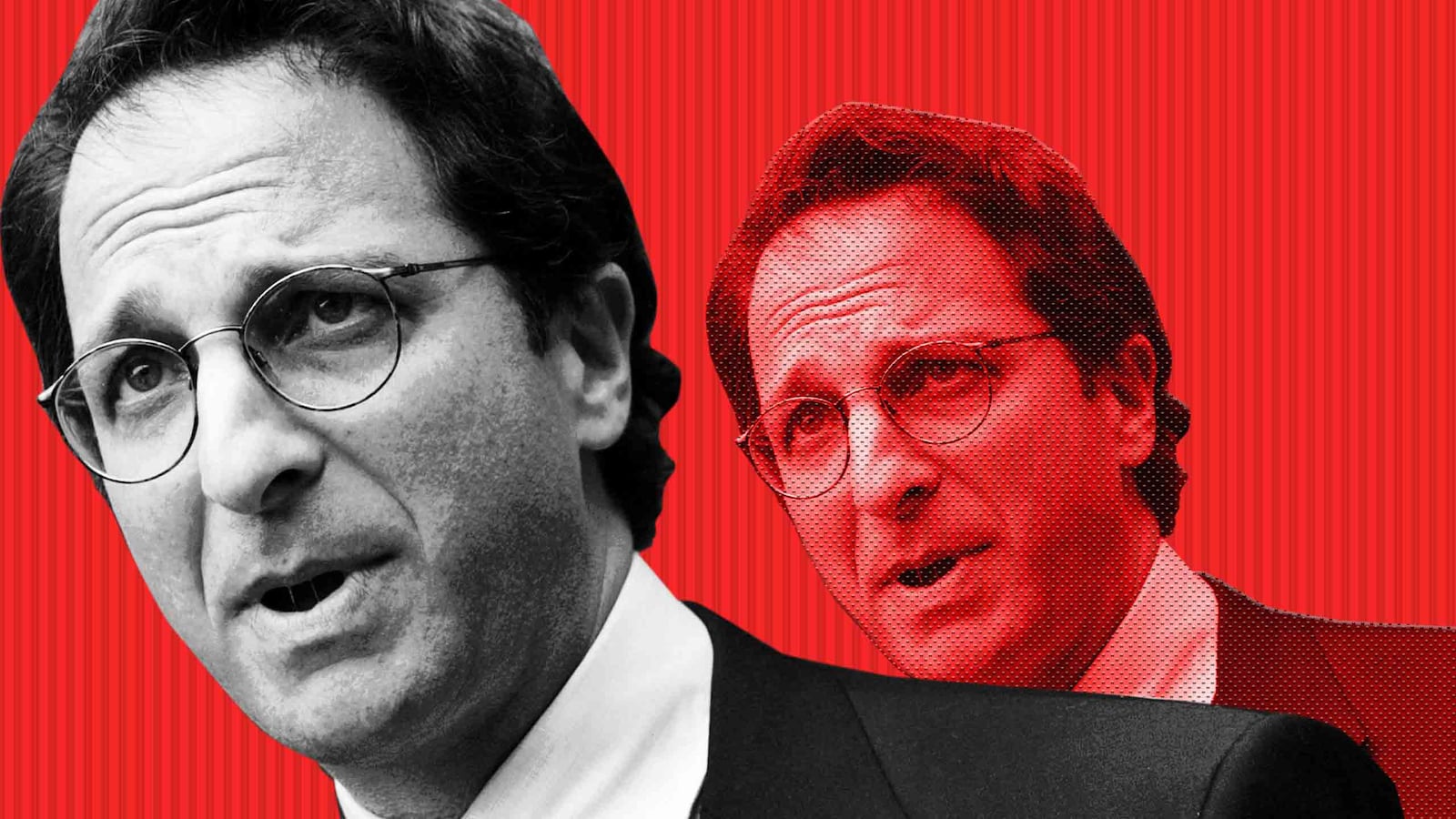The FBI’s decision to send a dozen agents on an early-hour raid of former Trump campaign chairman Paul Manafort’s home struck some observers as an audacious, even unprecedented move for a white collar criminal case.
But to former federal prosecutors familiar with members of special counsel Bob Mueller’s team, it had all the makings of the work of Andrew Weissmann.
A former federal prosecutor from Brooklyn who spent his career going after mobsters, ponzi-schemers, and white collar criminals, Weissmann is known as a tenacious operator who uses strategies that have dazzled some legal experts and disturbed others. They believe his presence on Mueller’s team means the probe may push legal boundaries as it investigates alleged collusion between Trump and Russian interests.
“He fashions himself as a real tactician, in the sense of having a chessboard in front of him and moving pieces around,” said a person who has faced Weissmann in court.
Mueller has known and trusted Weissmann for more than a decade, having made him special counsel at the FBI for a few months in 2005, according to the Houston Chronicle. In 2011, after Weissmann left the bureau for a short stint in private practice, Mueller brought him back and made him the FBI’s general counsel.
“Mueller trusted him to be the FBI’s top lawyer,” said a former federal prosecutor who knows Weissmann. “That’s a pretty big deal.”
While he was general counsel to the FBI, Weissmann was known as quick-moving and decisive.
“For me, he was very responsive and supportive, smart, willing to make decisions, rather than just delay behind lawyer language,” said Ron Hosko, former assistant director of the bureau’s Criminal Investigative Division. “More than once, I called for input and his response was ‘I’ll be right down,’”
Weissmann would not comment for this piece and is not speaking to media because of his work for Special Counsel Robert Mueller.
Weissmann started his career as a prosecutor in the U.S. attorney’s office for the Eastern District of New York. There, he worked with a number of people who would go on to positions of extraordinary power: Valerie Caproni, who would become a federal judge in New York; Loretta Lynch, who would become attorney general; and Beryl Howell, who would also become a federal judge – the judge now overseeing Mueller’s grand jury.
“He was very friendly with Loretta,” said a former federal prosecutor who worked in Brooklyn while Weissmann was there. “They were all part of a little gang together – they would go out for lunch, they would go out for dinner.”
During his years at the Justice Department, Weissmann built a reputation as a prosecutor willing to push the envelope – sometimes with disastrous results. He worked on the Justice Department’s Enron probe from 2002 to 2005. And while he was there, he helmed the prosecution of Arthur Andersen, Enron’s accounting firm, arguing that it had obstructed justice by destroying documents investigators would have needed.
Weissmann and his team took the aggressive step of indicting the entire accounting firm. According to a source familiar with the case, the firm’s defense attorneys met with them not to do so before the indictment, arguing that the firm would be certain to dissolve if it were indicted, leaving thousands of people jobless.
“Their response indicated they didn’t care,” said the person familiar with the case.
On March 14, 2002, the Justice Department announced the indictment of Arthur Andersen for obstruction of justice. The indictment meant the company couldn’t work for publicly traded companies. Within months, it was out of business. More than 20,000 people lost their jobs, as ABC News detailed.
Weissmann and his team won a conviction when a jury found Arthur Andersen guilty on June 15, 2002. But it was short lived. Three years later, the Supreme Court ruled unanimously to overturn that ruling, on the grounds that the jury had been given faulty instructions about the law on obstruction of justice. Not one person at the firm was ultimately found guilty.
In 2006, Weissmann and Howell co-authored a scholarly law paper on the Andersen Supreme Court ruling. They argued that the final ruling didn’t mean prosecutors would have trouble bringing obstruction cases, arguing that since Congress had passed the Sarbanes-Oxley Act in response to the Enron scandal, the ruling was “dead on arrival.”
Some former federal prosecutors who spoke to The Daily Beast said they’re surprised Weissmann’s career continued to flourish after the Andersen defeat.
“Absent the good will of his friends Loretta Lynch and Bob Mueller, it is inconceivable that his DOJ or FBI career would be have been resuscitated after the Andersen debacle,” said one former prosecutor. “At the Justice Department, influential friendships mean everything, and can even overcome results that would be career killers for others.”
But while some prosecutors scoff at Weismann’s career resuscitation others say he is the perfect pick for Mueller – tenacious and aggressive, and with an unswerving focus.
“This investigation will be closely scrutinized by the media, Congress and just about everybody,” said George Stamboulidis, a partner at BakerHostetler who was a trial partner with Weissman when they were both prosecutors in Brooklyn. “Andrew Weissmann is accustomed to conducting investigations in such high-profile and supercharged circumstances, and therefore he is not distracted by the external forces and instead remains focused and unflappable.”
But perhaps Weissman’s best attribute for Mueller is that he’s accustomed to cases that involve extraordinarily complicated legal and geopolitical questions – the kind of questions the special prosecutor team will surely face as it looks to unravel allegations that Trump campaign officials and allies worked with Russian government operates in the lead-up to the presidential election.
“If you heard him speaking, you might think he was a computer science professor or something like that,” said a person who previously worked with him. “You wouldn’t cower in fear from him – except he’s really good at what he does.”





